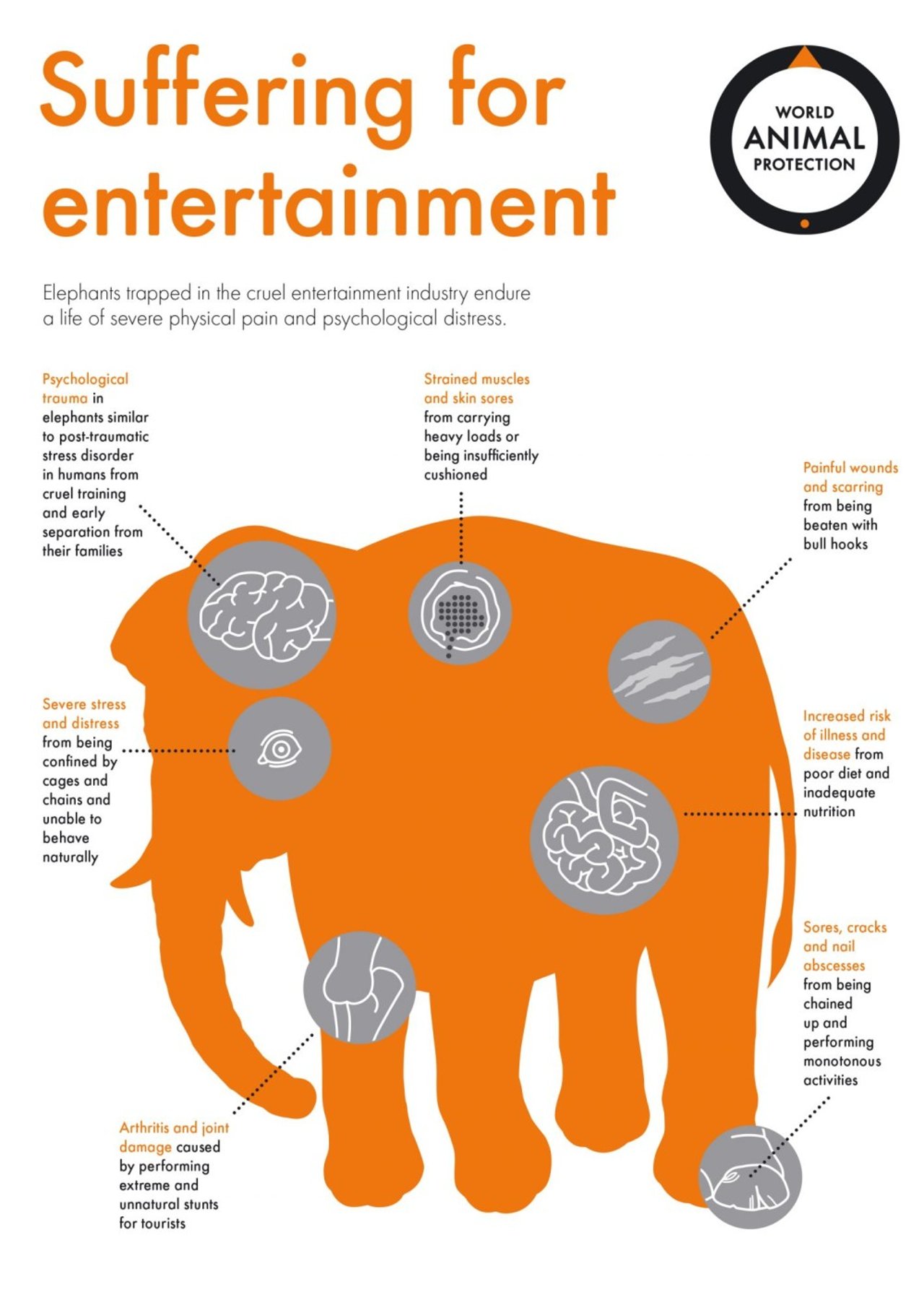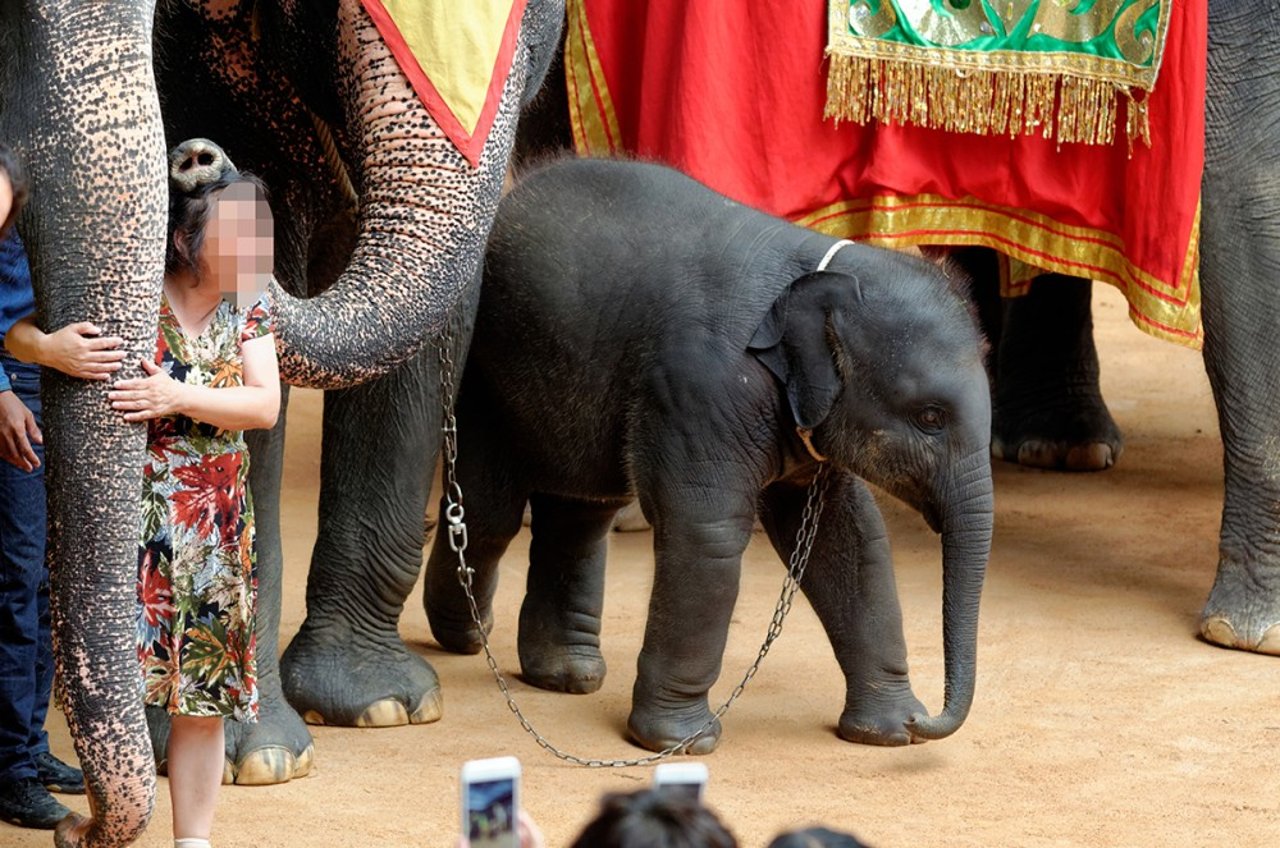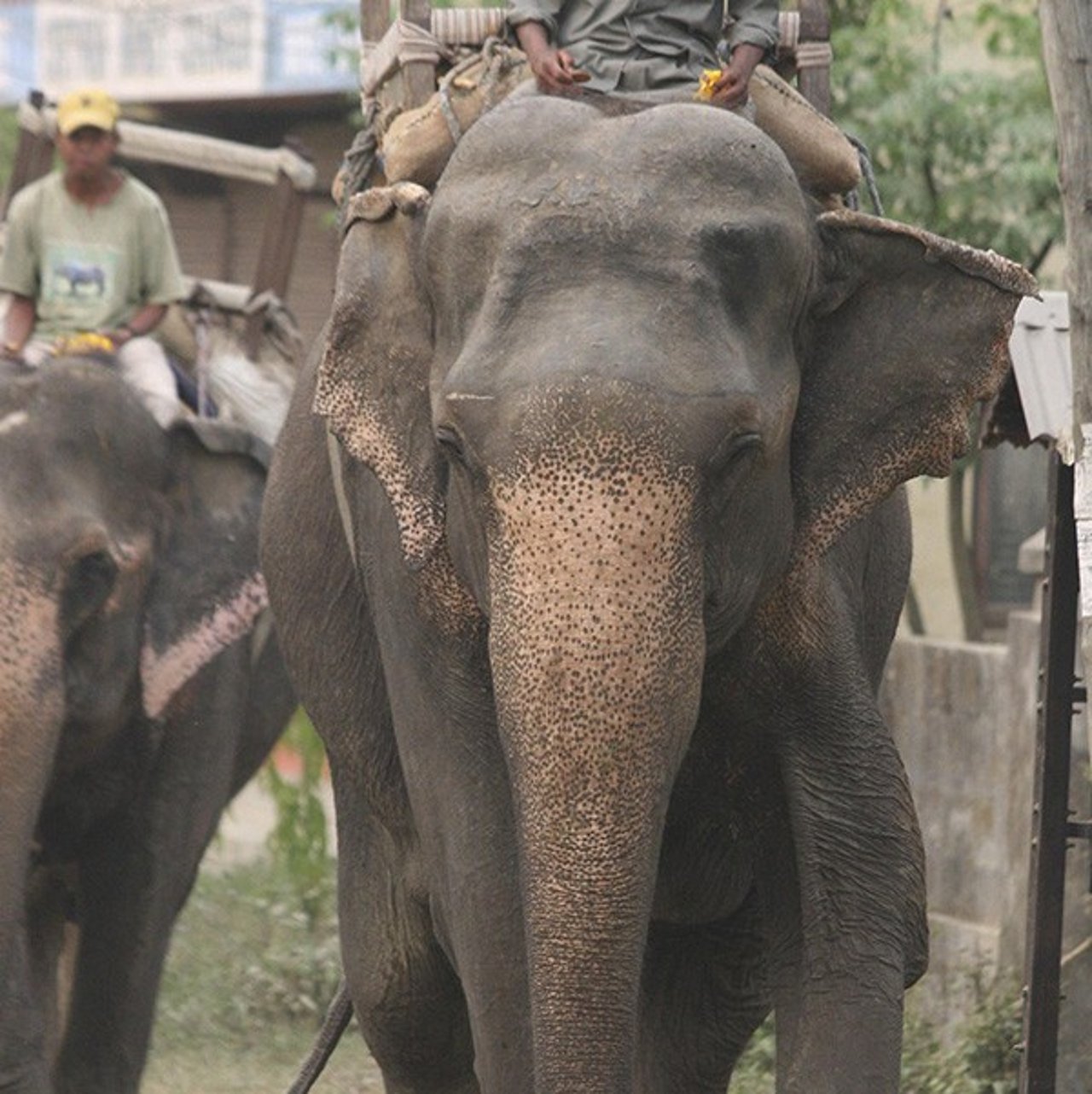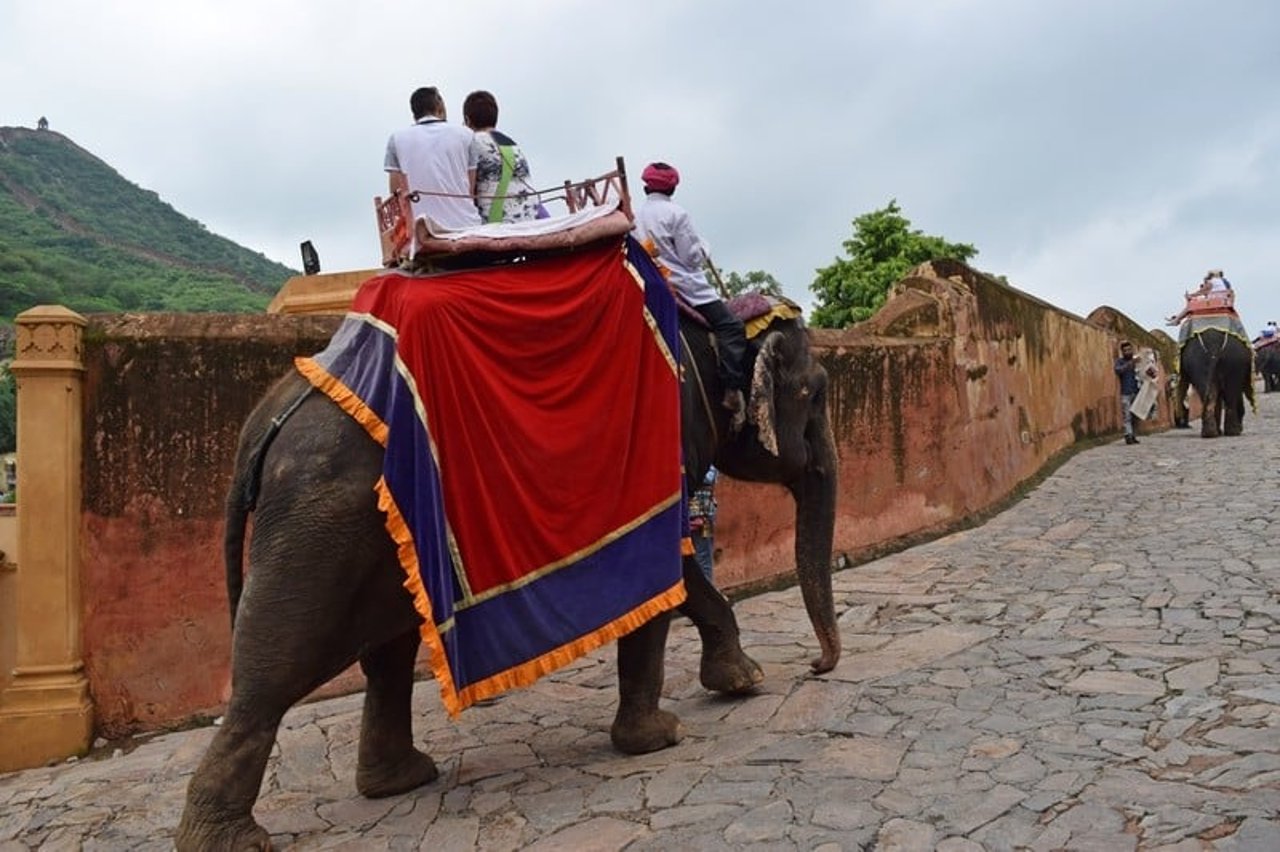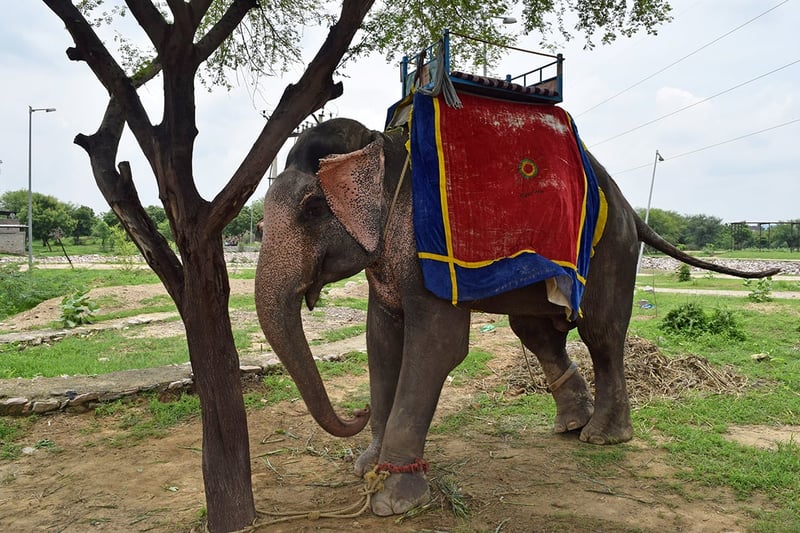
9 things you need to know about that once-in-a-lifetime elephant ride
News
An elephant ride or animal show is still a holiday dream for many tourists travelling to Asia. But the reality is a nightmare of abuse for elephants trapped in entertainment.
By Rosie Bell
1. Elephants aren’t domesticated (genetically selected to depend upon and live alongside human beings, like dogs or sheep). They’re fundamentally wild animals.
2. Their wild nature and great physical power means elephants can’t easily be trained to give rides or perform tricks. The traditional training process known as ‘phajaan’ inflicts starvation and torture upon young calves to break their wild spirits.
3. Elephants are among the world’s most intelligent animals, with a strong desire to wander and explore. But those used for entertainment are often chained and closely confined, leading to intense psychological distress, disorders and repetitive behaviors.
4. Most tourists pay to get up close to elephants because they love animals – but 80% of people leave positive reviews for venues with poor animal welfare. Behind the bright facades and clever tricks is a lifetime of hidden abuse.
5. Selfies aren’t a harmless souvenir - any venue that allows you to touch or take a selfie with a captive wild animal is profiting from cruelty.
6. Even in high-welfare zoos, captive elephants live less than half as long as their wild counterparts. In poor-welfare tourist attractions, abuse, neglect, loneliness and poor diet are just a few factors that can contribute to elephants’ reduced lifespan.
7. Despite claims of captive breeding, it’s estimated that as many as 75% of captive adult elephants used for tourist entertainment have been stolen from the wild. Captive breeding too fuels the illegal wildlife trade by boosting demand for these endangered animals.
8. Elephant calves stick close by their tightly bonded family group – and tragically up to 3 protective females may be killed for every calf stolen by poachers to sell into tourism.
9. There’s something you can do - help us create a better future for elephants. Take our elephant-friendly pledge and tell the wildlife entertainment industry you won’t stand for cruelty:
In poor-welfare tourist attractions, abuse, neglect, loneliness and poor diet are just a few factors that can contribute to elephants’ reduced lifespan.
